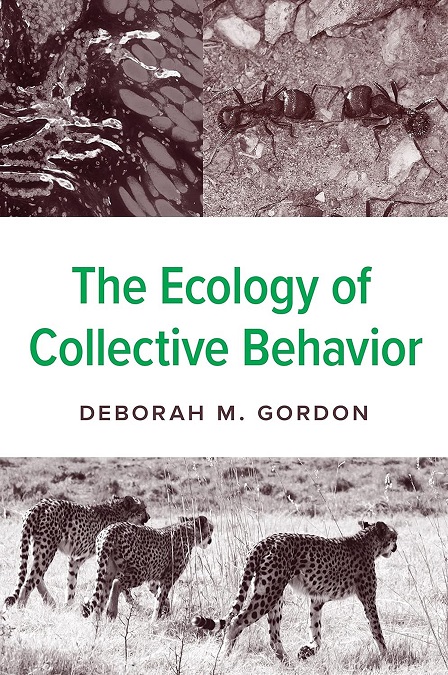Science and Religion
Science, Religion, and Sociology
Robert Bellah: Sociology and Systems Biology

Robert Bellah, a leading American sociologist at UC Berkeley, made a groundbreaking contribution by bridging religious studies of the Axial Age with a systems biological approach. This achievement represents a significant development in the dialogue between science and religion, particularly within the sociological study of religion and public theology, which are deeply connected to the comparative study of world religions.
로버트 벨라는 버클리 대학의 저명한 사회학자로서, 축의 시대의 종교 연구와 시스템 생물학적 접근을 연결함으로써 획기적인 공헌을 했다. 이 업적은 과학과 종교 간의 대화에서 중요한 진전을 나타내며, 특히 종교의 사회학적 연구와 공공 신학의 영역에서 큰 의미를 갖는다. 이는 세계 종교의 비교 연구와도 깊이 연결되어 있다.
From this perspective, a public theology of science emerges—one that aligns with a theology of nature. This approach allows the sociology of science to engage with and benefit from public theology, reinforcing a systems view of life and affirming ecological integrity. Such a position—recognizing the coexistence of multiple realities—offers a corrective to the limitations of sociobiology, which often rests on a reductionist framework and the “gene myth” as its explanatory core.
이러한 관점에서 과학의 공공 신학이 등장하며, 이는 자연의 신학 (theology of nature)과 대화를 진척시킨다. 이러한 접근은 과학 사회학이 공공 신학과 상호작용하며 그로부터 유익을 얻을 수 있도록 한다. 더 나아가 생명에 대한 시스템적 관점을 강화하고 생태적 온전성을 확증하는 데 기여한다. 이러한 입장은 다차적 현실의 공존을 인정함으로써, 환원주의적 틀과 ‘유전자 신화 (gene myth)’를 설명의 핵심으로 삼는 사회 생물학 (sociobiology)의 한계를 비판적으로 넘어선다.
Ted Peters: Science, Religion and Ethics

Ted Peters presents a compelling exploration of the intersections between science, theology, and ethics. He argues that science challenges faith to seek a deeper and more comprehensive understanding of reality, while faith, in turn, calls science to embrace greater social and ethical responsibility.
테드 피터스는 과학, 신학, 윤리의 교차점에 대한 깊이 있는 탐구를 제시한다. 그는 과학이 신앙 으로 하여금 보다 깊고 포괄적인 현실 이해를 추구하도록 도전하며, 반대로 신앙은 과학이 더 큰 사회적·윤리적 책임을 수용하도록 요청한다고 주장한다.
Peters thoughtfully engages the ethical and theological implications of advancements in genetic research, including questions surrounding human nature, freedom, and responsibility. Central to the book is a dialogue model of the science-religion relationship, which offers a shared platform for theologians, scientists, and representatives of world religions. This model provides a promising path forward—reinvigorating public discourse on the nature of the world, scientific rationality, and humanity’s place within it.
피터즈는 유전 연구의 진보가 가져오는 윤리적·신학적 함의, 특히 인간 본성과 자유, 책임에 대한 질문들을 깊이 있게 성찰한다. 이 책의 중심에는 과학과 종교의 관계에 대한 대화 모델이 자리하고 있으며, 이는 신학자, 과학자, 그리고 세계 종교의 대표자들이 함께 소통할 수 있는 공동의 장을 제공한다. 이 모델은 세계의 본질, 과학적 합리성, 그리고 그 안에서 인간의 위치에 대한 공적 담론을 재활성화하는 중요한 경로를 제공한다.
Deborah Gordon: Ecology of Collective Behavior

In The Ecology of Collective Behavior, Deborah Gordon, professor of biology at Stanford University, presents a compelling ecological framework for understanding how collective behavior emerges through dynamic relationships—both within and between systems. Central to her study is a systems approach that examines “how collective behavior at each layer is generated by interactions among participants and how this responds to changing conditions” (p. 5).
스탠퍼드 대학교 생물학 교수 데보라 고든은 『The Ecology of Collective Behavior』에서 집단 행동이 어떻게 역동적인 관계—시스템 내부와 시스템 간의 관계 모두—를 통해 나타나는지를 이해하기 위한 설득력 있는 생태학적 틀을 제시한다. 그녀의 연구의 핵심은 시스템 접근법에 있으며, 이는 “각 계층에서 집단 행동이 참여자들 간의 상호작용을 통해 어떻게 생성되며, 이러한 행동이 변화하는 조건에 어떻게 반응하는지를 조사하는 것”이다.
Drawing on the etymology of ecology—from the Greek oikos, meaning “household” or “village”—Gordon explores how individual interactions give rise to collective ecological consequences, including phenotypic variation. These interactions shape the way natural selection influences behavioral patterns, suggesting that collective behavior is both a product and a driver of ecological dynamics.
‘생태학’이라는 용어의 어원—그리스어 oikos, 즉 “가정” 또는 “마을”—에 착안하여, 고든은 개별적인 상호작용이 표현형의 다양성을 포함한 집단적 생태 결과를 어떻게 유발하는지를 탐구한다. 이러한 상호작용은 자연 선택이 행동 양식을 형성하는 방식을 결정짓는 데 영향을 미치며, 또한 집단 행동이 생태 역학의 산물인 동시에 그것을 추동하는 요인임을 시사한다.
This ecological framing resonates with sociological theories of social organization. Max Weber’s concept of the social group as a culturally stratified agent pursuing material interests through structured interactions offers a sociological lens through which to interpret oikos. Niklas Luhmann’s systems theory extends Weber’s insights by emphasizing functional differentiation, wherein social systems regulate communication and interaction to maintain systemic coherence.
이러한 생태학적 틀은 사회 조직에 관한 사회학 이론과 공명한다. 막스 베버의 사회 집단 개념은 문화적으로 계층화된 행위자가 구조화된 상호작용을 통해 물질적 이익을 추구하는 것으로서, oikos를 해석하는 사회학적 접근을 제공한다. 니클라스 루만의 시스템 이론은 베버의 통찰을 확장하며, 사회 시스템이 의사소통과 상호작용을 조절하여 시스템의 일관성을 유지하는 기능적 차별화를 강조한다.
Gordon’s ecology of collective behavior carries significant sociological implications: it illuminates how social interactions contribute to the provision of goods and services within a group, while also encouraging dialogue on system regulation, inequality, and public value. For public theology, this perspective opens new pathways for examining collective behavior within the public sphere as stratified yet interactive systems—capable of fostering transformation through innovation, collaboration, and ecological solidarity.
드보라 고든의 집단 행동 생태학은 중요한 사회학적 함의를 지닌다. 이는 사회적 상호작용이 집단 내에서 재화와 서비스를 제공하는 방식에 어떻게 기여하는지를 밝히며, 동시에 시스템 규제, 불평등, 공공 가치에 대한 대화를 촉진한다. 공공 신학의 측면에서, 이것은 공공 영역 내에서 집단 행동을 계층적이면서도 상호작용하는 시스템으로 분석하는 새로운 경로를 열어준다. 이러한 시스템은 혁신, 협력, 생태적 연대를 통해 변화를 촉진할 수 있는 잠재력을 지니고 있다.